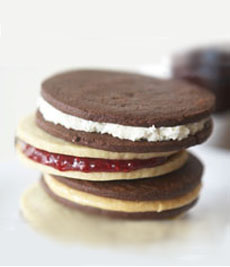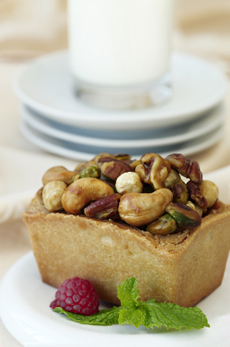| The Sweet Flour Bake Shop in Toronto is at the vanguard of something we haven’t seen before: cookies and muffins custom-baked with your choice of mix-ins, prepared while you wait—in as little as two minutes. You can create just one cookie or take home a dozen.
Do the math, and you get 15,000 different combinations—a different cookie for every day for the next 41 years.
First, you start with a choice of an Original, Oatmeal or Peanut Butter cookie dough (what—no chocolate?) or muffin tops in Original or Bran muffin tops.
Then pick 2 or 3 mix-ins:
- Chips: dark chocolate chunks, semi-sweet chocolate chunks, milk chocolate chunks, white chocolate chunks, chocolate mint chips, peanut butter pieces and butterscotch chips, plus sprinkles
|
|

Cookies made to order in two minutes.
Photo courtesy Sweet Flour Bake Shop. |
- Candy: M&Ms, mini pretzels, snickers, toffee pieces
- Dried Fruit: blueberries, cherries, cranberries, figs, raisins
- Nuts: almonds, macadamias, pecans, pistachios, walnutsIf you’ve in the mood for ganache, have a sandwich cookies in chocolate, peanut butter or shortbread with chocolate, maple, peanut butter, salted caramel or vanilla crème.
OK, we’ll start with a chocolate sandwich cookie with salted caramel ganache; then move onto a bran muffin with dried cherries, figs and pistachio nuts. We’ll be back later for an Original cookie with M&Ms, toffee and snickers.
How about you?
And when is a Sweet Flour bakery opening near us?
|
|






